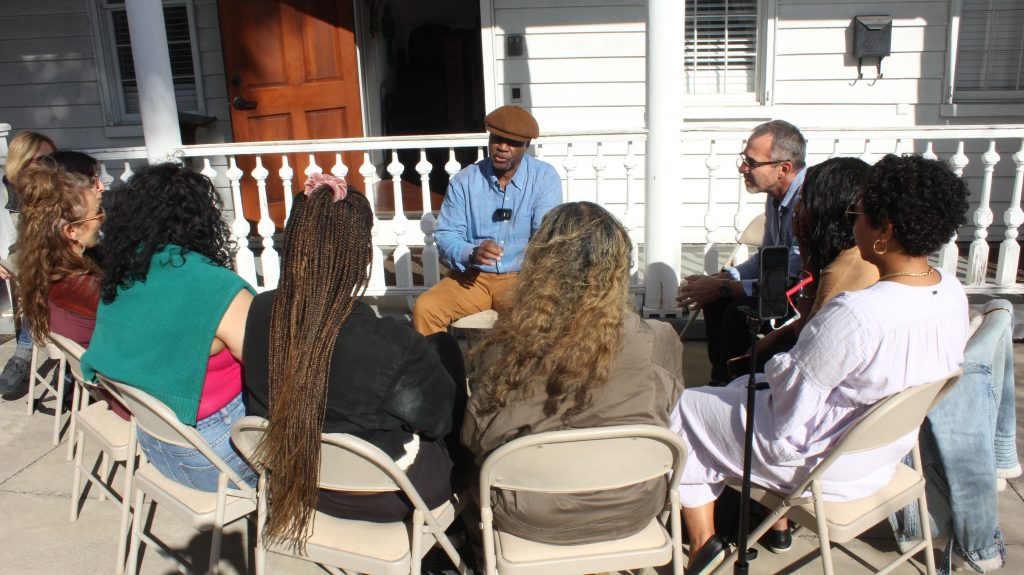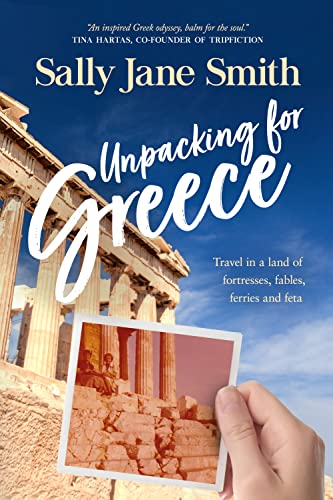Why Do Travellers Get Away With Everything, Travellers often seem to dodge repercussions due to flexible laws and local economies benefiting from tourism. Cultural exchange and empathy sometimes play roles in their leniency.
Travel has become an integral part of modern society, with millions embarking on journeys for leisure, exploration, and business each year. The perception that travelers ‘get away with everything’ can stem from a complex interplay of factors. Local laws often cater to tourists to encourage spending, which boosts the economy.
Authorities may exhibit greater tolerance towards tourists’ missteps, aiming to maintain a region’s reputation as a welcoming destination. Travellers themselves tend to be more adventurous, taking risks they might avoid at home, and this behaviour can sometimes be looked upon with a more forgiving eye. Local residents and law enforcement may also show leniency out of respect for cultural differences and a desire to share their homeland’s beauty and traditions without conflict. This dynamic helps cultivate an environment where travelers can enjoy a sense of freedom and adventure, although it’s important to note that this isn’t universally applicable and consequences do occur.

The Allure Of Wanderlust
The Allure of Wanderlust has long captivated the human spirit. Stories of distant lands, exotic cultures, and majestic landscapes beckon the restless soul. Travelers seek to embrace the unknown, to shake off the shackles of the ordinary. The lure is potent, whispering secrets of adventure and transformation that wait just over the horizon.
Romanticizing Globe-trotting
Our desire to roam free and explore is as old as time. Poets, writers, and artists have painted travel as a noble pursuit. Globe-trotting carries a seductive charm, and those who answer its call often find themselves draped in an aura of envy and fascination.
- Exploration is human nature.
- Travel narratives inspire others.
- Adventurers are celebrated in stories.
Social Media’s Role
Enter the digital age, and social media takes center stage. Platforms like Instagram and YouTube turn travel escapades into visual feasts for the eyes. Users showcase their journeys, casting an alluring net that pulls others into the fray.
| Platform | Impact |
|---|---|
| Visually-rich travel stories | |
| YouTube | Immersive video experiences |
| Shares and connects globe-trotters |
As aspirational lifestyles go viral, they shape public perception. Suddenly, a traveler’s mischief is seen not as misbehavior, but as a daring departure from the norm.
Defining Traveler’s Privilege
Have you ever wondered why some travelers seem to glide through adventures with ease? This phenomenon is often rooted in the unspoken advantages many globetrotters benefit from, known as traveler’s privilege. It’s a mix of social, economic, and political factors that allows certain travelers to access opportunities and experiences that are out of reach for others. Let’s dive deeper into what constitutes this privilege.
The Notion Of ‘free Spirits’
There’s a romantic idea about travelers being free spirits. People often view them as individuals who boldly explore the unknown without constraints. The truth behind this image is more complex. It’s not just about bravery or a wanderlust spirit; it’s often about possessing the freedom and resources to make such choices without significant repercussions.
Economic And Passport Privilege
- Economic Advantage: Access to financial resources can make or break a traveling experience. Travelers with a sturdy economic background afford better safety, comfort, and convenience.
- Passport Power: The strength of a passport can dramatically influence one’s travel ease. A passport from a country with widespread visa-free agreements unlocks doors to many destinations.
These privileges allow some travelers to enjoy a world of virtually borderless experiences, creating a stark contrast to those who travel under limitations and restrictions.
Historical Context Of Travel
Over the centuries, travel has shaped our world. It’s about more than just seeing new places. It shapes how we see others and how we interact. Today’s wanderlust stems from a deep history. Let’s dig into the past to uncover the roots of modern travel.
Colonialist Roots Of Exploration
Exploration once meant claiming lands and resources. Strong nations sent sailors across oceans. Their goal? To find wealth and new territories. This age of discovery has a darker side. It paved the way for colonial rule and exploitation.
| Period | Explorers | Impact | |
|---|---|---|---|
| 15th-17th Century | Columbus, Magellan | New trade routes, colonial empires | |
| 18th-19th Century | Cook, Livingstone | Scientific discoveries, maps expansion | |
Colonial powers set the world’s stage. They made rules that often favored the traveler from the ruling class. This led to a sense that travelers could do as they pleased in far-off lands.
Modern Echoes Of Age-old Attitudes
Times have changed, but old habits linger. Traveling today often carries privileges rooted in the past. People cross borders with ease unknown to many locals. This freedom is a reminder of those old power structures.
- Visa-free access for certain passports
- Economic power to influence local markets
- Perceived status of international travelers
These modern privileges reflect a complex history. Understanding this helps us navigate travel more responsibly. A conscious traveler recognizes these echoes of the past. They strive for respectful and fair interactions worldwide.

The Double Standards In Travel
The concept of ‘The Double Standards in Travel’ sparks a complex conversation. Travelers often seem to navigate the world with a unique set of rules. The notion that tourists can, at times, act with impunity is a controversial one. It raises questions about the balance between hospitality and the enforcement of local norms.
Local Laws Versus Tourist Leniency
Local laws serve as the backbone of societal conduct, dictating the dos and don’ts for residents. For travelers, these rules can blur, leading to a puzzling level of leniency. This disparity manifests in various ways. Authorities might turn a blind eye to minor infractions, either to avoid deterring tourism or in recognition of cultural ignorance. It’s a delicate dance between maintaining order and fostering a welcoming environment.
- Flexible legal enforcement for minor mishaps
- Special treatment at tourist sites
- Visa and entry concessions for visitors
Behavioral Latitude For Tourists
Tourists often benefit from a broader behavioral latitude. Oversights in local etiquette or customs can lead to educational moments rather than harsh consequences. This cushion allows travelers to explore with a greater sense of freedom but also feeds into the narrative of double standards.
| Expectation | Local | Tourist |
|---|---|---|
| Adherence to Dress Codes | High | Moderate to Low |
| Knowledge of Local Customs | Imperative | Encouraged, Not Required |
| Consequences for Misbehavior | Strict | Often Lenient |
Understanding these disparities is essential in fostering respect for the destinations travelers visit. A balance ensures tourists enjoy their journeys while locals feel their culture and laws are upheld.
The Power Of The Passport
Imagine a key that opens doors around the world. This key isn’t magic. It’s a passport. For many travelers, a passport is a symbol of freedom. It grants the holder access to new countries, cultures, and experiences. But not all passports wield the same power. The strength of a passport can decide if a traveler can easily explore the planet or face hurdles at every turn.
Visa-free Access And Global Mobility
Think of travelers as guests and countries as hosts. Some passports act as VIP invites, offering visa-free access to numerous destinations. Holders of these passports enjoy swift entry.
- No need for lengthy visa applications
- Less waiting in lines at embassies
- More spontaneous travel
These fortunate travelers can decide on a whim to visit a place. They simply book a ticket, pack, and go. Their global mobility is unmatched, allowing them to embrace opportunities abroad with ease — whether for tourism, business, or education.
The Struggle Of Less Powerful Passports
Not all passports are created equal. Some travelers face constraints. They know global travel isn’t just about buying a ticket. It’s about navigating a maze of bureaucracy.
- Securing a visa can take months.
- It can involve a stack of documents.
- Permission isn’t guaranteed.
These hurdles lead to missed opportunities and increased costs. Passport power directly affects freedom of movement. It illustrates an invisible hierarchy among nations and their citizens. For those with less favorable passports, the world is a much more complicated place to explore.

Economic Leverage Of Tourists
Travelers bring economic power to the places they visit. They spend money on hotels, food, and fun. This can change a local place a lot.
Tourism’s Impact On Local Economies
Money from tourists is like fuel for local spots. Shops, eateries, and tour companies grow because visitors buy things. Jobs appear, and towns change.
- Tourists spend, businesses earn.
- More jobs mean more money for local families.
- Good changes happen: better roads, parks, and schools.
Bargaining Power On The Road
Tourists can talk about prices. They often get deals because they buy a lot.
| Who | What | Why |
|---|---|---|
| Travelers | Discuss price | Want cheaper |
| Sellers | Agree to drop | Get more sales |
| Local shops | Win-win | Happy customers |
Cultural Sensitivity And Ignorance
Travelers often embark on journeys to explore new cultures and traditions. Understanding and respecting these differences is crucial for a harmonious global community. Yet, some travelers navigate these cultural landscapes with a blend of naiveté and privilege, unwittingly causing friction. This section examines the fine line between cultural sensitivity and ignorance, emphasizing the importance of knowing the difference between respect and appropriation, and recognizing the impact of one’s actions while abroad.
Respecting Versus Appropriating
Engaging with different cultures requires a delicate balance. One must differentiate between respect and appropriation. Respect involves an earnest effort to understand, honor, and value another’s culture. Appropriation, on the other hand, involves taking elements of a culture without permission or understanding, often for one’s own benefit or entertainment. This can lead to harmful stereotypes and diminish the significance of cultural practices.
- Do research on cultural practices and symbols before your visit
- Engage in local traditions with permission and guidance
- Avoid wearing traditional garments as costumes or fashion statements
Ignorant Bliss Or Willful Disregard?
Travelers often claim ignorance to excuse missteps, but ignorance can be a choice. In the age of information, claiming ignorance increasingly reflects a willful disregard for cultural norms and sensitivities. Responsible travelers take the time to learn and understand the cultures they visit to avoid offending local customs and traditions.
| Ignorant Bliss | Willful Disregard |
|---|---|
| Unaware of cultural norms | Ignoring known customs |
| Lack of research | Choosing not to learn |
| Mistakes from naivety | Errors from negligence |
Every traveler has a responsibility to bridge the gap between cultures with sensitivity and awareness. By doing so, we foster a more respectful and open-minded global community.
Challenging The Status Quo
Challenging the Status Quo means asking bold questions. Why do some travelers seem to dance through life without rules? They skip norms and carve new paths. It’s not always fair or right. Yet, change happens when people push boundaries. Let’s explore this further.
The Rise Of Responsible Tourism
Responsible tourism is gaining ground. It’s about caring for the places we visit. Tourists are now guardians of the spots they love. They protect culture and nature. It’s a revolution in travel.
- Eco-friendly accommodations are popping up everywhere.
- Local experiences trump traditional tourist traps.
- Giving back has become part of the journey.
Initiatives For More Equitable Travel
Fair travel is the new catchphrase. It advocates for balance. Local communities should benefit from tourism too. New initiatives support this ideal.
- Community-based Tourism: Travelers immerse in local lifestyles.
- Traveler’s Philanthropy: Donations boost local projects.
- Voluntourism: Combining travel with volunteering efforts.
These steps help. They ensure everyone gets a slice of the tourism pie. And they’re reshaping the travel scene for the better.
Frequently Asked Questions Of Why Do Travellers Get Away With Everything
Why Do Travellers Often Face Fewer Restrictions?
Many countries aim to promote tourism due to its economic benefits. Thus, travelers might face fewer restrictions to encourage their arrival and spending. Simplified visa processes or waived fees are common incentives.
Can Travellers Influence Local Cultures And Economies?
Absolutely. Travelers can have a significant impact on local cultures and economies. Through cultural exchange and spending on hospitality services, travellers contribute to economic growth and cultural enrichment of the destinations they visit.
What Are The Social Privileges Of Being A Traveller?
Travellers can enjoy social privileges like meeting new people, gaining unique experiences, and often receiving a warm welcome from locals enthusiastic about sharing their culture, which can lead to a sense of freedom and global citizenship.
How Do Travellers Manage To Adapt Quickly?
Travellers often plan ahead and may use travel apps and guides to navigate new environments. Their adaptability is also due to an openness to new experiences and a willingness to learn from different cultures.
Conclusion
Travelers often seem untouchable, navigating life with a unique zest and freedom. This maverick spirit captivates, inspiring many to embrace the unknown. Their stories enrich us, pushing boundaries of comfort and igniting wanderlust. At its core, this lifestyle reflects a universal truth: the world awaits, and for those bold enough to explore it, there are no limits.

I am a travel-specialized writer and blogger based in the USA & UK. I have four years of experience in travel and all types of Tours. So I work on solving these issues and give various tips on these issues

